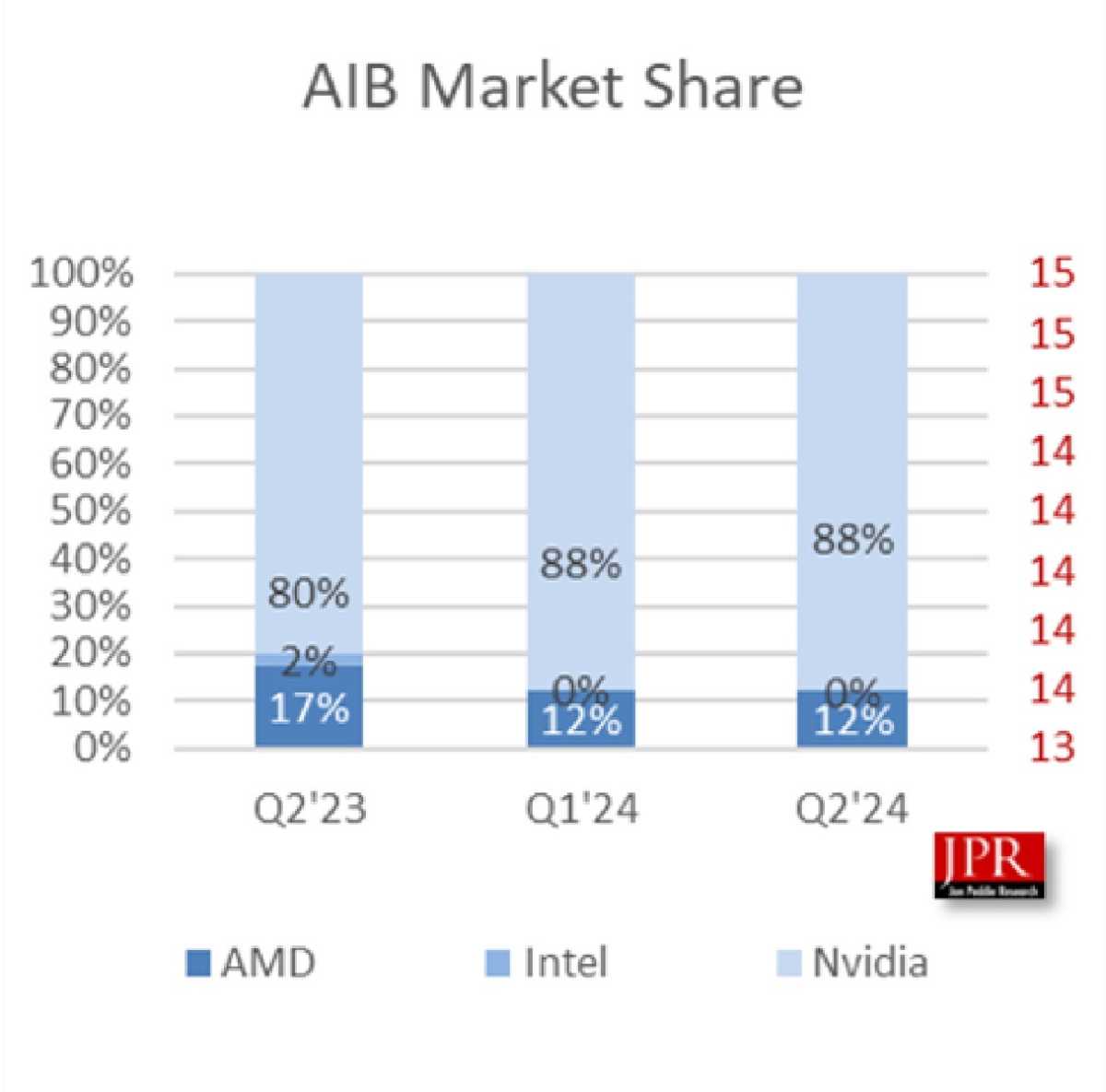Report: Intel has been eliminated from PC graphics cards
Intel may still be a dominant player in PC gaming since it sells a majority of all PC processors — and those chips have integrated graphics built into them — but as far as its presence in discrete graphics is concerned, Intel’s time has seemingly come to an end.
According to analyst firm Jon Peddie Research, shipments of PC graphics cards increased to 9.5 million units in the second quarter of 2024 (up 9 percent from the first quarter). It’s a surprising find since the 10-year average shows a 7.1 percent dip during the second quarter. JPR attributed the gain to the first-quarter launch of new cards.
The more interesting story, though, continues to be the ongoing war between AMD, Nvidia, and Intel in the discrete graphics card market. And in this war, one company has been forced out with Intel now controlling exactly zero percent of the PC graphics card market. (That drop actually occurred around the beginning of the year, reports JPR, after falling from a miniscule 2 percent a year ago.)
Related: The best graphics cards for every budget
That makes the PC graphics card market a two-horse race. Well, barely. Nvidia holds such a commanding share of the market — 88 percent — that the company essentially controls the market outright. A year ago, Nvidia held an 80 percent share, ceding the remainder to AMD and Intel. Today, the 12 percent of the PC graphics card market that Nvidia doesn’t control has been ceded to AMD alone.


Jon Peddie Research

Jon Peddie Research
Jon Peddie Research
“The add-in board market continues to surprise and astonish market watchers who have been predicting its doom for decades,” said Jon Peddie, JPR’s president, in a statement. “With one little dip in Q1 (seasonally normal), we’ve seen four quarters of growth. But, overall shipments are down compared to two years ago, so that’s not encouraging. However, we remain optimistic about the future, and the fantastic games that are coming that will take all the performance an AIB can offer.”
There’s a bit of irony in all this, given that Intel just released its Lunar Lake mobile processor for laptops. Inside Lunar Lake is a new Xe2 graphics core, which Intel plans to bring to market as (potentially) a discrete GPU known as Battlemage. But Battlemage is already late, with Intel having previously predicted a 2023 debut. Meanwhile, Nvidia’s upcoming GeForce 5000 series (“Blackwell”) is eagerly awaited and hopefully will debut soon.
The good news, according to JPR analyst C. Robert Dow, is that PC graphics card prices should remain flat until Nvidia and AMD release their next-gen GPUs. Whether Intel can regain any market share at all while competing against those chips, however, seems like it would require something close to a miracle to pull off.
Further reading: Why factory overclocked GPUs aren’t worth extra
